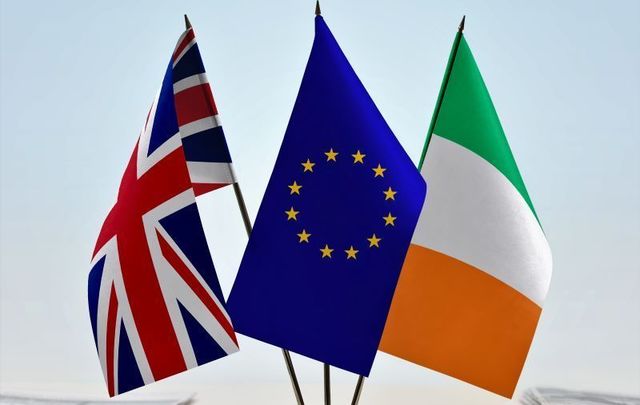Many British people are opting for Irish residency, citizenship, and or naturalization in the wake of Brexit.
As Brexit - and all its uncertainty - still looms over both the United Kingdom and the European Union, there are scores of British people who are making their own alternate plans.
Read More: How to get an Irish passport
The Guardian spoke with several British people who have opted for Irish residency, citizenship, and or naturalization in the wake of Brexit.
Many of those featured in The Guardian’s article are not so much interested in wanting to become Irish, but more so in remaining European after their home country voted, albeit narrowly, in 2016 to exit the European Union.
Marc Scully, a psychology lecturer at Limerick’s Mary Immaculate College, told The Guardian that the process of gathering the paperwork and actually beginning the citizenship process can “trigger a genuine connection with Ireland.”
“It may start off pragmatically thinking ‘I’ll be in the right queue in the airport’, then becomes emotional, more of a psychological process of identification.”
If Scully’s theory is correct, then there are masses of British people who will be experiencing this “psychological process of identification” as British applications for Irish passports has skyrocketed since Brexit.
Read More: Irish passport applications up by 30% already this year
Similarly, there are many British citizens who are not entitled to Irish passports through direct Irish lineage and have taken their chances by emigrating to Ireland, where you can apply for naturalization after five years.
According to the Irish Department of Foreign Affairs, in order for a British person to apply for an Irish passport, they must meet certain requirements:
- If you were born in the Republic of Ireland or Nothern Ireland before January 1, 2005, you are entitled to an Irish passport
- If you were born in the Republic of Ireland or Northern Ireland after January 1, 2005, you are entitled to an Irish passport depending on your parents’ citizenship at the time of your birth and the residency history of at least one of your parents before your birth
- If you were born outside of Ireland to parents or grandparents who were born in Ireland, you are entitled to an Irish passport
- If one of your parents was an Irish citizen at the time of your birth but was not born in Ireland, you may be qualified
- If one of your parents obtained Irish citizenship through Naturalisation or Foreign Birth Registration before you were born, you may qualify
The Guardian spoke with several British people who have opted to head for Ireland after Brexit.
Among them was ‘Remain’ campaigner and southeast England native Keith Donaldson, who, after the 2016 referendum, jumped at the chance to move to Dublin when his employer opened an office there.
“I’m building up to be an Irish citizen, that’s the long-term goal,” said Donaldson, who has no direct claim to Irish heritage and will have to, therefore, apply for naturalization after 5 years of living in Ireland.
“I grew up regarding myself European and wanted to maintain that,” Donaldson said.
He added: “Some things you can’t do unless you’re a citizen. I’ve started getting involved in various political groups. It’s about contributing, being a member of Irish society. I identify myself as being a Brexit refugee.”
Read More: Irish government called upon to address Brexit passport pressure
Dual British-Brazilian national Alexandre de Menezes, who now teaches at the National University of Ireland Galway, also left the UK for Ireland after Brexit.
“Moving here gave me the possibility to be here long enough and apply for citizenship. I have to be here for five out of nine years,” said de Menezes.
“Being half British was always important to my identity, but Brexit took some of the shine away.”
Kate Ryan, a native of Bristol in the UK, married an Irish man and relocated to Co Cork about ten years ago, but her urge to seek Irish citizenship didn’t intensify until after Brexit.
“It was always in the back of my mind that I would go for citizenship, but Brexit has forced my hand. I decided to crack on and get this thing done,” said Ryan of her application for naturalization that, in the absence of Irish heritage, will entail copious amounts of paperwork and a cost of about €1,500 ($1,690).
“Everything is so up in the air,” Ryan added. “This is very much about protecting my status. I see it as an opportunity to redefine who I am and my place in the world.”
Mike Clarke, who has an Irish grandparent which qualifies him for an Irish passport, left Brighton to take up the role of director of campus infrastructure at Trinity College Dublin.
“I plan to stay in Ireland as long as I can. UK plc will take an awful long time to heal,” he said.
“I’m a very proud Englishman and British citizen. But I think of myself as European.”
Read More: Irish passport office swamped by Brexit as one million seek citizenship
Kieran Fitzpatrick, who grew up in England with Irish parents, is concerned about both the economic and emotional consequences of Brexit and has also departed the UK to take up research at NUI Galway.
“Brexit could be awful for Ireland in terms of economic consequences,” said Fitzpatrick, “but from an emotional landscape, it’s been a nice feeling to be removed from it."
"It’s a very sad period in British history."
Are you trying to get Irish citizenship in the wake of Brexit? Let us know in the comments




Comments